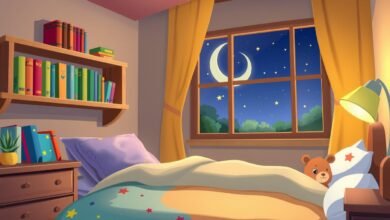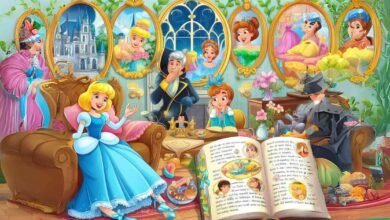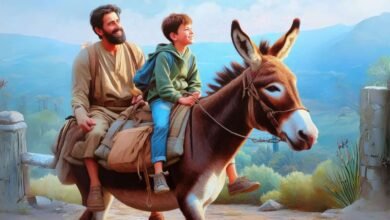The paper hero

As the sun melted the dark snow grains, and washed away the dirty water and all the household trash deposited during the winter – rags, bones, broken glass – a number of odors began to feel in the air, all overlapping the sweet smell of the earth in early spring. It was then that Genia Pirapletshikov came out into the courtyard.
His name was so ridiculous that he, since learning to write, felt it as a humiliation. Plus, Genia had a leg problem at birth, which made him jump in a weird way when he walked.
In addition to this, the continually clogged nose forced him to breathe through his mouth so that his lips were always dry. And Genia had to lick them constantly.
In addition, I had no father. It is true that half of the children had no father, but unlike the others, Genia could not say that their father had died in the war: he had never had a father. All this made Genia feel very unhappy.
He therefore went out into the still half-convalescent courtyard of his winter and spring afflictions, with a woolen cap tucked over his head and a long green scarf wrapped around his neck. neck.
The sun was incredibly hot. The girls had lowered their socks, wrapping them around their legs like sausages. The lady of house number seven, with her granddaughter’s help, had dragged a chair under the window and was sitting there with her face turned in the sun.
The air, the earth, were all alive and emanating strength, especially the bare trees, from which, at any moment, small leaves would burst happily.
Genia was standing in the middle of the courtyard, listening, impressed, to the magnificent sounds around her. A fat cat crossed the yard diagonally, pawing hesitantly on the wet earth.
The first ball of mud fell right between the boy and the cat, who bent his back and jumped back. Genia shuddered. Mudflaps hit him hard in the face. The second ball hit him in the back, and he didn’t even wait for the third: he sprang into the doorway. A mocker chased after him like a sound spear: Genia Manco, see if you blow!
Turned around. Kolka Kliukvin threw the mud balls, the girls laughed, and behind them was the one they all obeyed, the enemy of no one in his group: the cunning and fearless Shenka Aityr.
Genia ran to the door of the house. Her grandmother was coming down the stairs, a tiny grandmother with a brown hat on her head. I was going for a walk in the garden. An already worn fox fur with gleaming amber eyes rested on his shoulders.
At night, when Genia snored behind the green screen, her mother and grandmother sat at the table for a long time.
– Why? Why are they always hurting you? Finally asked her grandmother in a whisper.
“I think we should invite them to Genia’s birthday,” said her mother.
– You’re crazy! Said the frightened grandmother. – That’s not kids, they’re bad guys!
“I see no other way out,” said the grumpy mother. “We have to make a cake, something to eat, and prepare a serious birthday party for her.”
– They are barbarians and bandits. They’ll take us all we have home, ”her grandmother insisted.
– Well, tell me, what do you think they can steal from you? Asked the mother coldly.
You did not answer.
– Your old shoes, maybe?
– Why, the shoes! Grandma let out a heavy sigh. – The boy pity me.
Two weeks have passed. A mild, mild spring had come. The mud had dried. The yard was overgrown with grass, and although the villagers struggled to soil it again, it was still clean and green.
Children played in the morning at “police and thieves”. The fences were painted with chalk and charcoal arrows, the sign of the thieves on the loose.
Genia had been going to school for two weeks now. Mother and grandmother exchanged glances with each other. The superstitious grandmother spat over her shoulder – yes and no. The interval between two diseases usually did not last more than two weeks.
In the morning, the grandmother took her grandson to school. After school, she would wait for him in the lobby, wrap his green scarf, take his hand, and take him home.
On the eve of the birthday, her mother told Genia that this year they were going to have a real party.
“Invite anyone you want from your living room and patio,” he suggested.
– I don’t want anyone. Please, mom, no! Asked Genia.
“It has to be,” her mother answered shortly, and the twitch of her eyebrows told Genia that nothing would move her.
At dusk, the mother came down to the courtyard and invited the children for the following day. He spoke to the whole group without distinguishing anyone; only Shenka Aityr addressed separately:
– And so are you, Shenka.
He looked at her with such cold, adult eyes that she was embarrassed.
– And why not? I will, ”he said impassively.
And the mother went to start preparing the cake batter.
Genia looked sadly around the room. What worried him most was the shiny black piano. Surely no one else had such a thing at home. The bookcase and sheet music on the shelf still apologized … But Beethoven, that horrible black Beethoven mask! Surely someone would ask wickedly, “Is that your grandfather? Or your father? ”
Genia asked her grandmother to keep the mask. The grandmother was amazed.
– But what bothers you about her now? Look, your mother received her as a gift from the teacher!
And grandma told, for the infinite time, how her mother was a talented pianist and how, if it hadn’t been for the war, the conservatory would have ended…
On the table set, shortly before four, was a terrine with potato salad, toasted herring bread, and rice-filled pirogues.
Genia was sitting at the window with her back to the table and trying not to think that in no time her noisy, happy, irreconcilable enemies would come in… She seemed completely immersed in her favorite occupation: making a boat of newspaper sheet.
Genia was a great master of the art of paper. He had spent hundreds of days in his life in bed. Autumn bronchitis, winter angina, and spring colds had all endured with patience, folding ends and smoothing out folds of paper with a bluish gray book with a giraffe on its cover. It was called “Fun Hours” and had been written by a wise man, a magician, the best man in the world – one such M. Gershenson. This was a great teacher, but Genia was also a great student. Incredibly gifted at this paper hobby, he’d already done things that not even Gershenson had dared to imagine!
Genia wheeled the incomplete boat in her hands, awaiting with fear the arrival of the guests. They arrived as a group at four o’clock sharp. The blond sisters, the younger guests, handed her a large bunch of daisies. The others came without a gift.
Neatly, everyone sat at the table. The mother served homemade gas with cherries, and said:
– Let’s toast to Genia, who is years ago today.
They each took their glass and toasted. Her mother pulled the swivel seat, sat down at the piano, and played “The Turkish March.” The sisters stared in fascination at the hands sliding on the keys. The younger one had a frightened face, as if she would burst into tears at any moment.
Shenka, with an indifferent air, ate potato salad and a pirogue, and her grandmother surrounded each care guest, as she usually did with Genia.
The mother was now playing Schubert songs. An incredible scene: twelve poorly dressed but clean and well-combed children ate in complete silence while a thin woman made fleeting sounds from the piano keys.
The birthday boy was sitting with sweating hands staring at his plate. The song came to an end, flew out the window, and only a few low tones hovered under the ceiling before following the others.
“Genius,” said her grandmother suddenly, in a sweet voice, “don’t you want to play something too?”
The mother gave her grandmother an alarmed look. Genia’s heart almost stopped: they hated him for the ridiculous nickname, the bouncy gait, the long scarf, and the grandmother who went with him. And now I had to play the piano in front of them!
The mother saw that he had gone pale, guessed why and replied:
– Another day. Genia plays the other day.
The brave Valka Brobova asked, incredulous and almost admired:
– Can he play?
The mother brought the cake. Tea was served. In a round bowl were candies, fruit candies and caramels. Kolia ate with her mouth full without any shame, and had some in her pocket. The sisters sucked on acid candies and wondered which ones to pick next. Valka smoothed silver paper over her pointed knee. Shenka looked around the room with ease. The eyes slid from side to side. Finally, he pointed to the mask and asked:
– Aunt Mussia! Who is that? Pushkin?
The mother smiled and replied kindly:
– That’s Beethoven. A german composer. He was deaf, yet he made magnificent music.
– A German? Asked Shenka alertly.
The mother rushed to rid Beethoven of any suspicion.
– It died a long time ago. It lived over a hundred years ago, long before fascism.
Her grandmother had begun to tell her that Aunt Mussia had received her teacher’s gift mask, but her mother looked at her with a stern look and she fell silent.
– Do you want me to touch you something from Beethoven? Asked the mother.
“Yes, please,” Shenka agreed, and her mother pulled the stool back, turned it over to the piano, and played Genia’s favorite piece, “The Groundhog,” which, for whatever reason, told her. caused sadness.
They were all sitting very quiet, without the slightest hint of impatience, although the candies and sweets were long gone. The terrible tension Genia had been under all the time had eased, and for the first time she felt a kind of pride. Her mom was playing Beethoven and no one was laughing, everyone was listening to her and looking at the strong hands running over the keys. The mother stopped playing.
– Okay, enough music. Let’s play something. What did you like to play?
“Maybe at the letters,” Kolia said without thinking twice.
“Let’s make a gift game first,” her mother proposed.
No one knew what it was. Shenka stood by the window and was turning the unfinished little boat in her hands. The mother explained how a gift game worked, but no one had anything to give.
Lilia, a girl with a complicated braid, always had a comb in her pocket, but didn’t want to give it – what if it disappeared? Shenka laid the little boat on the table and said:
– This is my gift.
Genia took the boat, and very easily finished it.
“Genia, she also makes gifts for girls,” her mother said, placing a newspaper and two stiffer sheets of paper on the table. Genia took a sheet of paper, she thought for a moment, folded the paper in half…
Boys ‘shaved heads and girls’ tight-braided heads bowed to the table. A boat, a barge, a sailing boat, a glass, a barrel of salt, a bread basket, a shirt…
As soon as Genia finished one piece, the others immediately took it from her hand.
– For me too, do something to me too!
– But you already have! Now it’s my turn!
– Make me a cup, Genia, please!
– A doll, Genia, make me a doll!
They would reach out to him, he would offer those wonders of paper and everyone would smile, everyone would thank him. He pulled his handkerchief once and blew his nose – and no one noticed, not even him.
Only in dreams had she experienced such a sensation. I was happy. There was no fear, no rejection, no hostility. It was no less than them. Moreover, they admired a trivial talent to which even he gave no importance. For the first time he looked at their faces: they were not angry. They were absolutely not angry at all.
Shenka turned and flipped a sheet of newspaper on the windowsill. He had unfolded the boat and was trying to fold it again. When he saw that he was not able, he reached Genia, put his hand on his shoulder and asked him, treating him for the first time by name:
– Look, Genia, and now, how do you do it?
Her mother washed the dishes, smiled and tears fell into her soapy water.
Happy, the little boy was distributing paper toys.
Ludmila Ulitzkaia Ein glücklicher Zufall und Andere Kindergeschichten München, Carl Hanser Verlag, 2005 (translation and adaptation)



